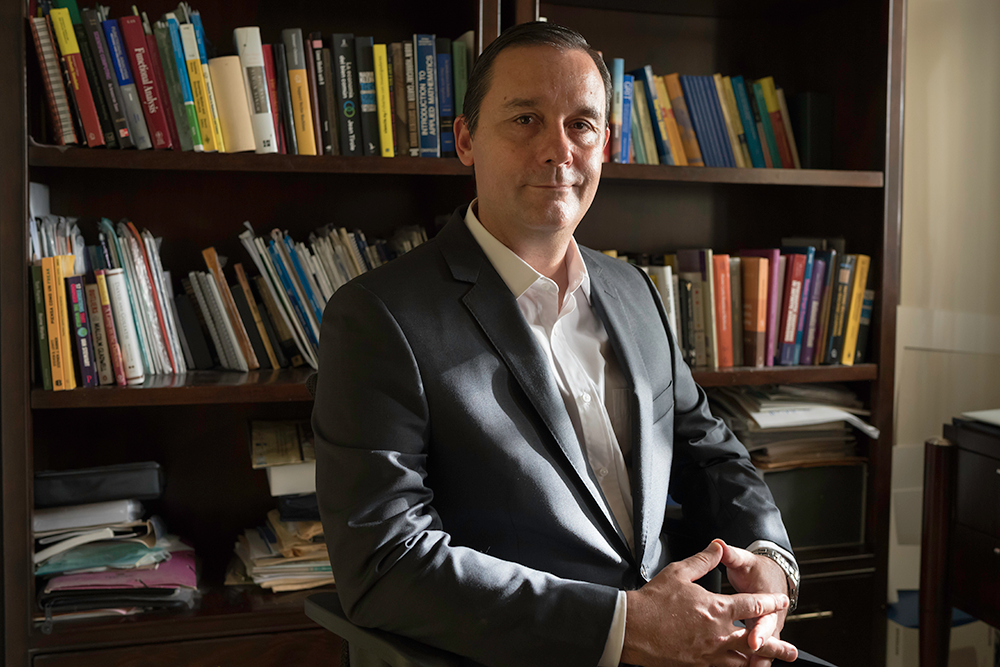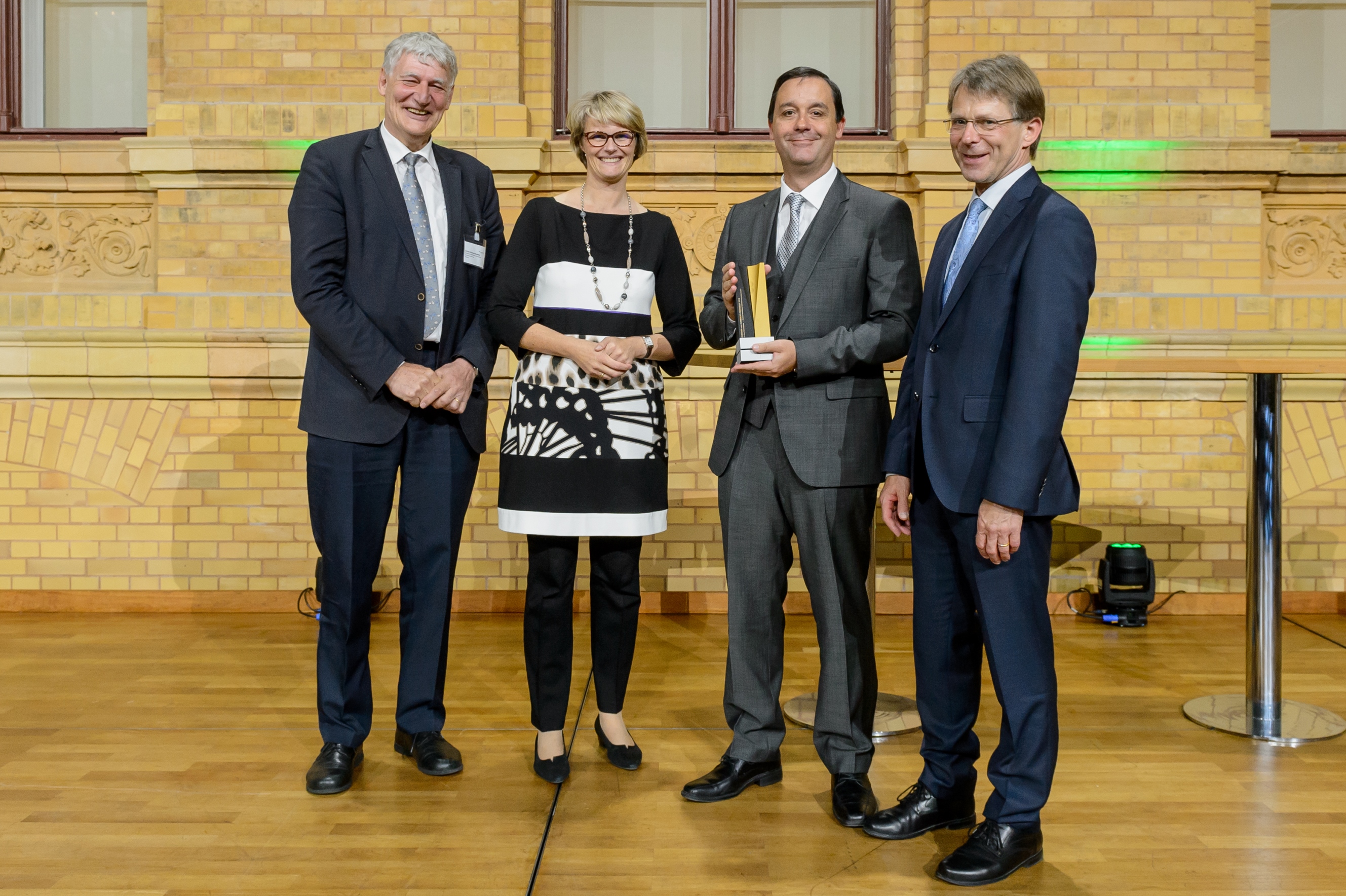The role of data-driven models in quantifying uncertainty

KAUST Professor Raul Tempone is a founding faculty member of the University and is the principal investigator of the Stochastic Numerics Research Group. File photo.
-By Meres J. Weche, KAUST News
A central principle of scientific inquiry is replication—the ability to repeatedly arrive at a predictable outcome under specific experimental conditions. In nearly all branches of science, this means reducing, or at least accounting for, uncertainty—a topic Raul Tempone is intimately familiar with.
"At the core, I am a numerical analyst who considers data and simulation science as a unit," Tempone explained. He is a founding faculty member at KAUST and the principal investigator of the Stochastic Numerics Research Group.
Tempone, a professor of applied mathematics and computational science, has built a global reputation as a leading expert in the field of Uncertainty Quantification (UQ). He was recently appointed an Alexander von Humboldt Professor at RWTH Aachen University in Germany. The highly endowed professorship, which lasts for a term of five years, will allow him to pursue his research on mathematics for uncertainty quantification with a diverse new set of collaborators, including engineers, chemists and biologists.

KAUST Professor Raul Tempone was recently appointed as the Alexander von Humboldt Professor at RWTH Aachen University in Germany, a highly prestigious honor. File photo.
A testament to KAUST research
The appointment means that a large, multidisciplinary panel of peer reviewers believes that Tempone should be recognized as a world leader in his field. In Tempone's opinion, it is evident that the successful execution of the KAUST Strategic Initiative for Uncertainty Quantification (SRI-UQ) contributed significantly to this award.
"This award is a top recognition to KAUST faculty who developed a sizable body of their scientific results at KAUST," said Tempone. "The award will facilitate an increased scientific output from the KAUST Stochastic Numerics group. We believe that the immense visibility of these activities will benefit both KAUST and RWTH, the German hosting institution. It will also enable cross-fertilization between European and KAUST research groups, enhancing the ability to attract talent to KAUST."
The applied science of uncertainty quantification
Tempone originally trained as an industrial mechanic engineer before focusing on mathematics. His drive has always been primarily applications—the development of theory towards concrete goals.
"I always have something in mind—a problem that motivates me," he said. "As a mathematician, this is wonderful because it allows for immediate impact."
One of the applied research areas Tempone and his group have been working on is renewable energy sources. Big data and modeling components are involved with quantifying and predicting power generated by wind and solar power.
"Predictions are never perfect. When it comes to wind, for example, the situation can change rather quickly—sometimes within hours," he explained.
By recognizing that available predictions are not perfect, numerical analysts can develop a system to predict the level of uncertainty around wind predictions. Then, an optimization system can include these augmented predictions to help electricity utilities minimize the cost of fulfilling vital energy demands. Indeed, by recognizing the uncertainty in predictions, the resulting optimal decisions become more robust and, on average, less expensive.
"Essentially, uncertainty quantification is an umbrella that involves researchers from many disciplines," Tempone noted. "What we do is to develop efficient methodology for computations related to problems that are subject to uncertainty."
Cross-disciplinary research
Tempone's group also worked on combustion research and chemical reactions. His Stochastic Numerics group is working with KAUST Professor Martin Mai's Computational Earthquake Seismology group, for example, on developing uncertainty computational techniques to better understand the source of earthquakes.
"The modern field of applied mathematics focuses on quantifying the uncertainties in computational predictions involving natural and technical processes, which arise, for instance, from unknown parameters in the simulation model and data measurement errors. This field is crucial for simulation-based decision-making in numerous applications, such as the management of water resources or the optimization of energy systems with significant components of wind and solar power sources," Tempone said.
He looks forward to working closely with his new collaborators from a variety of disciplines to continue making advances in the fields of numerical analysis, stochastic optimal control and UQ.
"I will continue working on the systematic, mathematically founded development of efficient methods for computational engineering and data science. These are critical strategic research topics that impact many technological and scientific applications," he said.

